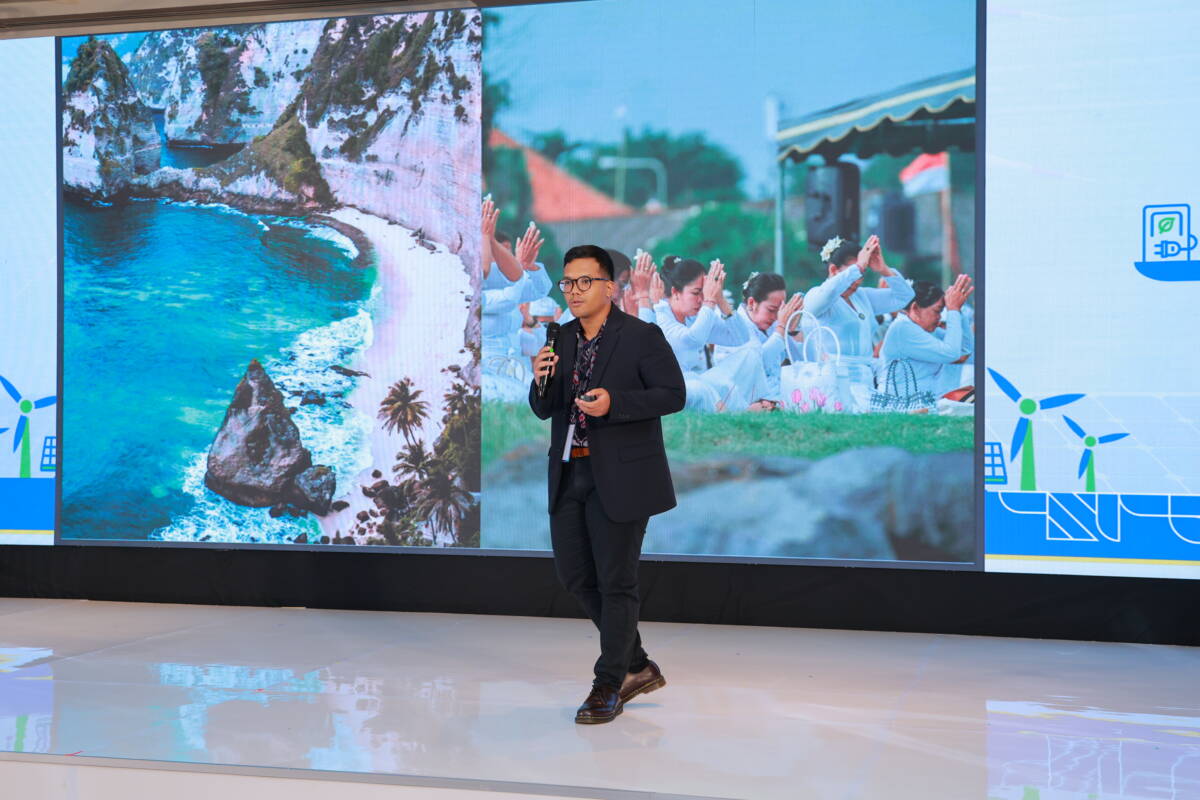Jakarta, October 29, 2025 – Bali has long been a tourist icon. Beyond its natural charm, Bali has also played a role in climate action by serving as a stage when Indonesia hosted global climate summits such as COP13 in 2007 and the G20 in 2022. These summits laid the foundation for Indonesia’s climate commitments, such as the Bali Roadmap. However, the recent situation in Bali has revealed a clear climate paradox. Power outages and flash floods that occurred in the immediate period (May – September 2025) demonstrate the fragility of Bali’s energy systems, spatial planning, land conversion, and drainage systems.
Alvin Putra Sisdwinugraha, Electricity Systems Analyst at the Institute for Essential Services Reform (IESR), in a TED Talk session titled “Would Bali Achieve Net Zero Emissions by 2045?” The Indonesia Energy Transition Dialogue (IETD) 2025 stated that electricity demand in Bali from 2021 to 2024 will be 16.3% higher, three to four times the growth in national electricity demand. To address this vulnerability, Bali must gradually reduce its dependence on fossil fuels.
The Institute for Essential Services Reform (IESR) conducted a study of Bali’s renewable energy technical potential and found that the total renewable energy technical potential in Bali reaches 22 GW, more than sufficient to meet Bali’s energy needs.
“Bali must gradually transform. In the short term, until 2034, rooftop solar power plants are a low-hanging fruit strategy that can be pursued up to 2.7 GW,” said Alvin.
Andrew Blakes, Professor of Engineering at the Australian National University, shared Australia’s experience over the past 10 years, which has only built renewable energy plants, primarily solar and wind.
“All new power generation (in South Australia) since 2000 and for the last 10 years has been solar and wind. All of it. No new fossil fuels, no geothermal, no hydro, no nuclear, just solar and wind. And all these projects are paid for investment, risk,” Andrew said.
Andrew added that it’s important to design investment models and electricity markets so that the private sector can make optimal contributions.
The comprehensive recommendations from the Indonesia Energy Transition Dialogue (IETD) 2025 can be found at the link IETD 2025: Three Key Recommendations for Achieving an Impactful Energy Transition – IESR

